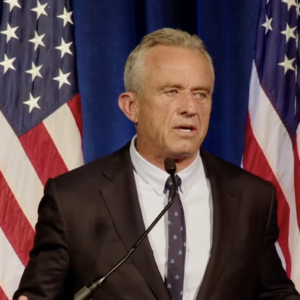The “Make America Healthy Again” report bills itself as a call to boost children’s health. Beneath the surface, however, it reads more like a litigation guide for lawyers eager to target food manufacturers, pharmaceutical companies and other companies under the guise of public health.
Let’s be clear: improving children’s health is crucial, and the Department of Health and Human Services is the appropriate regulatory agency to address public health challenges. However, improvements must be based on sound science, and the MAHA report, riddled with ill-cited and questionable claims, may ultimately be weaponized by lawyers as a roadmap to target industries.
A key segment of the report is a broad condemnation of “ultra-processed foods” — a vague term with no consensus definition in the scientific community. As Sarah Gallo of the Consumer Brands Association notes, “There is currently no agreed-upon scientific definition” of the term. The MAHA Commission attempts to offer a broad definition, but its ambiguous framing of ultra-processed foods creates fertile ground for litigation based more on narrative than real evidence.
That legal utility may be by design, spoon-feeding a primary target to the mass tort industry.
Coincidentally or not, Morgan & Morgan, the nation’s largest personal injury firm, filed a first-of-its-kind lawsuit this year in Philadelphia. Recently named the worst Judicial Hellhole in the country by the American Tort Reform Foundation, the Philadelphia Court of Common Pleas is plaintiff-friendly and was selected as the venue for this suit. The case alleges that major food manufacturers designed and marketed “ultra-processed foods” in a way that is addictive to children and responsible for rising rates of chronic disease.
HHS secretary and MAHA Commission chair Robert F. Kennedy Jr.’s previous ties to Morgan & Morgan raise even more red flags. Kennedy worked for Morgan & Morgan until 2022, and he remains involved in contingency-fee litigation alongside other prominent plaintiff firms. According to federal ethics filings, he received just under $9 million in legal fees and maintains financial interests in mass tort cases, including lawsuits against manufacturers of Roundup and the Gardasil vaccine.
These conflicts raise serious questions about whether health policy under Kennedy will be guided by science or steered by profit-driven litigation shake-down strategies.
We frequently see in these “Judicial Hellholes” how lawyers exploit ambiguous claims in friendly courts to drive policy through the courtroom. The MAHA report, whether intentional or not, equips them with new material.
It further opens the door for litigation partnerships between plaintiffs’ firms and government actors, where localities or state attorneys general outsource legal authority to private lawyers in exchange for a cut of future settlements.
This kind of litigation-first approach often backfires, resulting in fragmented lawsuits, duplicative legal strategies and settlements that prioritize legal fees over justice. It diminishes public trust in courts.
Victims see little in restitution, taxpayers are left in the dark about contingency fee arrangements, and policymaking becomes driven not by science but by the financial interests of a few elite firms. This is why regulatory agencies, such as HHS and the FDA, must lead with scientific facts.
Public health policy should reflect the best available fact-based science, not the lawyers’ profit strategy. If the MAHA report is to retain any credibility, it must be treated as a call for further scientific study and transparent oversight, not as a green light for litigation wrapped in public health messaging. It is the fundamental responsibility of our government to promote the public good, not cater to the financial motivations of the lawyers.
We should all care about the health of America’s children. That’s precisely why we cannot allow trial lawyers to define the terms, steer the debate, or regulate by litigation. The MAHA report deserves scrutiny, not because of its goals but because of the profit motives now circling its recommendations.

